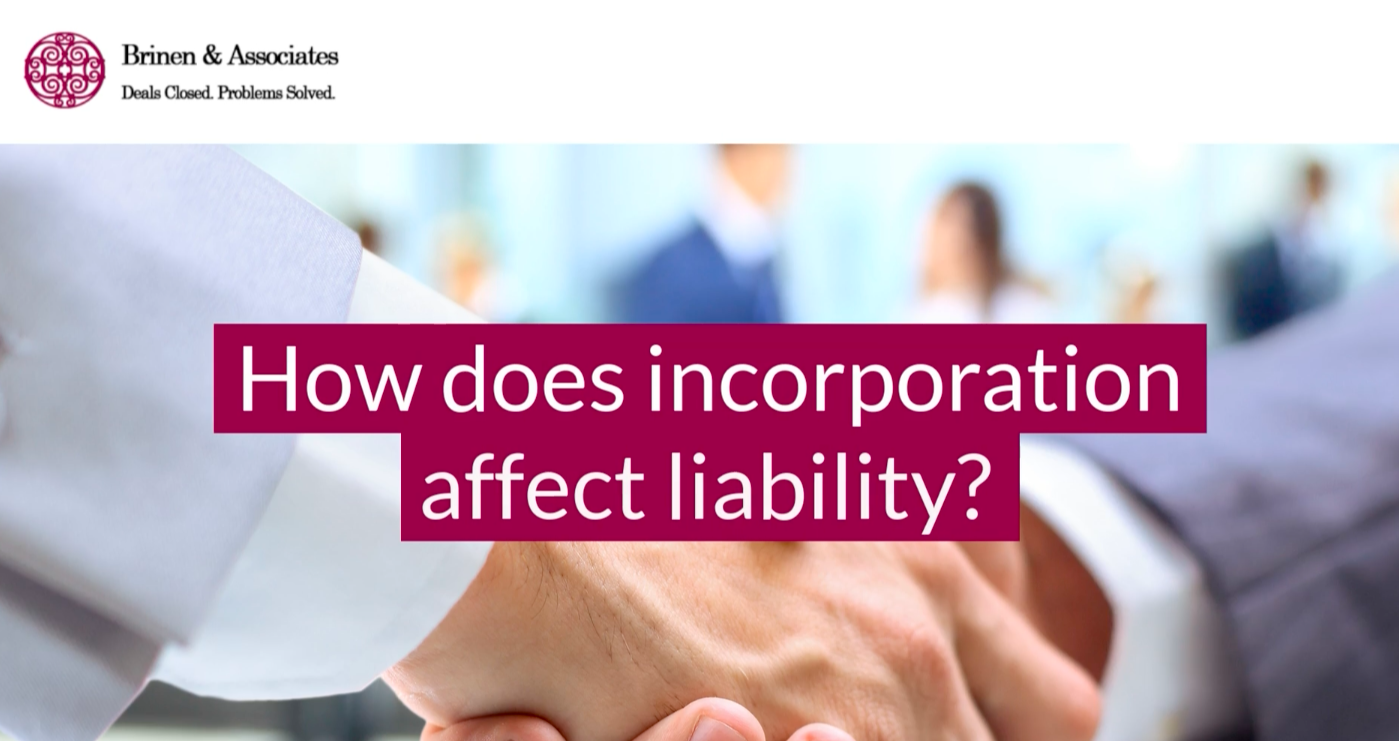How Does Incorporation Affect Liability?
The purpose of incorporation is to create a shield, or a corporate veil, to protect your personal assets from the liabilities of a business. While that corporate veil is not perfect, and you will put at risk your investment in the business, which is to say the money you put into the corporate solution, a corporate veil will protect you from having your personal, non-invested assets put at risk. The kinds of liabilities that a corporate veil will protect you from are lawsuits in tort, lawsuits in contract, certain fines, and taxes. The corporate liability shield can be broken if you violate one of the four rules of corporate liability. If you don’t maintain the corporate formalities, you may lose the corporate shield. If you under capitalize your business by selling shares of stock below the par value, you may lose the corporate protections. If you co-mingle your personal assets and your business assets, you may lose the corporate protection. If you use the entity for deception, you may also lose corporate protection.
How does incorporation affect your taxes?
A corporation is a separate taxpayer for the purposes of income taxation. That income taxation may be at both the state, the local, and the federal level. Creating a corporation will create a separate taxpayer with the separate employer identification number, and that separate number and that separate entity will have to pay its own taxes and its own way. There are instances where you can elect certain special tax treatment to make that corporation a flow through or partially flow through. One such election is called an S election. The S election was first implemented into law in the ’70s and has not been well caught up with modern business. Generally, you will have to pay a second set of taxes, currently at 21%, for a separate company.
What is S election and what are its limitations?
An S election is an election by a corporation under the Internal Revenue Code to be treated as a mostly pass through entity. The S election dates back to the ’70s and has not kept up well with modern times and modern business. An S-Corp, as they’re referred to, is limited to one class of stock. That one class of stock must have the same rights for all shareholders. An S-Corp is limited to 100 shareholders, and all of those 100 shareholders must be natural persons who are residents or citizens of the United States. In certain instances, another S-Corp may own an S-Corp. This is called a qualified Subchapter S Subsidiary. In other instances, a trust can own an S-Corp for a period of time. That is called a Qualified Subchapter S Trust. Each of these special entities have special rules and special qualifications.
How do I minimize my tax liability as a C corp?
A C-Corp is a separate legal entity that is wholly and distinct from yourself. So long as you maintain the corporate formalities, don’t under capitalize, don’t commingle your assets, and don’t engage in deception, you’ll be able to maintain the corporate shield. But as a cost of that corporate shield, you’ll need to pay separate taxes under Form 1120. You can reduce your taxes by analyzing your business and maximizing your deductions, such as Section 179, which is a depreciation accelerator by expensing matters that should ordinarily be capitalized. Under certain circumstances you can deduct inventory. You can also pay yourself out a salary, which will reduce your C-Corp taxes, but will create taxable income for you on your personal return.
